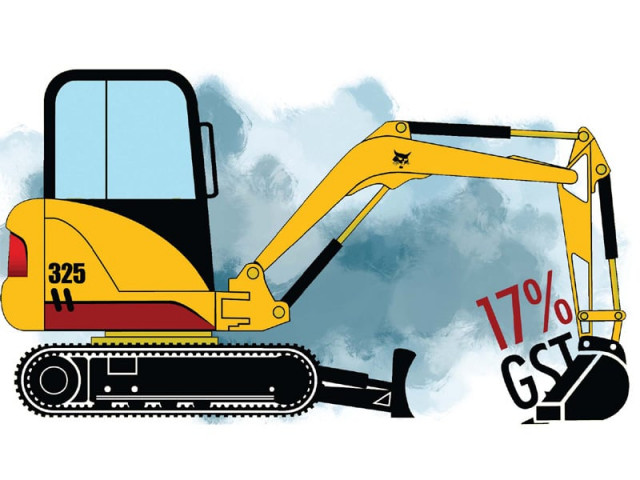Tax withdrawal : Machinery sales may be next in line
Government may succumb to pressure from yet another strong lobby.

After surrendering to the textile lobby, the government is considering withdrawing 17 per cent tax imposed on sale of plant and machinery recently, validating concerns raised by the International Monetary Fund (IMF) about Pakistan’s ability to stand by its unpopular economic decisions.
Federal Board of Revenue (FBR) officials told The Express Tribune that the government may withdraw the sales tax levied on March 15 after lobbies threatened to go on a strike against the decision. The government had estimated to collect Rs6.5 billion by charging 17 per cent sales tax on sale of plants and machinery for the remaining period of the current financial year (March 15 to June 30).
Taxing sale of plant and machinery is tricky as FBR Chairman Salman Siddique ,while talking to The Express Tribune, said “It is like choosing between promoting or discouraging new investments in the country.”
The government earlier this month announced 17 per cent sales tax on various sectors and a 15 per cent flood surcharge with the aim of generating an additional Rs53 billion in revenue.
The first in line
The government has already decided, in principle, to lower sales tax for the textile industry. On this account too, FBR had estimated to collect Rs6.5 billion in three and a half months. The reduction in tax rates, six per cent for yarn chain and four per cent for finished product, will likely lead to a fall of Rs2 to Rs3 billion in additional revenue.
The FBR chairman further said, “Taxing the initial stage of the textile sector is unsustainable because there is a large unorganised sector which needs to be documented first.” He added that the withdrawal of zero-rated tax facility on textile is a good step to begin with.
Siddique said the textile industry has assured the government of its support for the Reformed General Sales Tax (RGST) and in return they will be protected by a special tax regime for a period of two to three years.
The drop in revenue
Tax relief for the textile sector and plant sale will cause a drop of around Rs9 billion in additional revenue collection. The government will only manage to collect around Rs44 billion from the new tax measures against the target of Rs53 billion.
This will at least be the third time this year that the government is reversing an economic decision due to pressure as it earlier reversed decisions on increase in petroleum product prices.
During recent talks between Pakistan and IMF, the fund had opposed the one-off approach and raised doubts about Islamabad’s claim of collecting taxes from influential people - a concern that is now turning into reality.
Machinery is mostly imported by textile, petroleum and exploration sectors. The national exchequer had taken a hit of Rs5.2 billion last year on account of tax exemption on machinery and equipment imported by exploration and production companies, according to the Economic Survey of Pakistan 2009-10. Besides, custom duties and sales tax exemptions on import of specified machinery and plant also caused a loss of Rs11.5 billion, taking the total loss to Rs16.7 billion.
The likely withdrawal may also become a source of discouragement for those sectors that come under the tax net but do not have the backing of strong lobbies. These sectors include leather, sport, carpet and surgical goods. Exports of these sectors are zero-rated but domestic sales are subject to 17 per cent sales tax.
Published in The Express Tribune, March 30th, 2011.



















COMMENTS
Comments are moderated and generally will be posted if they are on-topic and not abusive.
For more information, please see our Comments FAQ